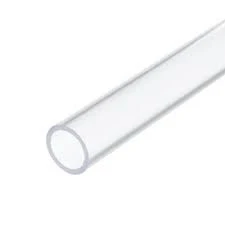Nov . 21, 2024 03:31 Back to list
pvc plastic sheet
The Versatility of PVC Plastic Sheets
Polyvinyl chloride (PVC) plastic sheets are a prevalent and versatile material used across various industries and applications. Known for their durability, flexibility, and cost-effectiveness, these sheets have become integral to construction, signage, packaging, and numerous other fields. This article explores the characteristics, applications, advantages, and environmental considerations related to PVC plastic sheets.
Characteristics of PVC Plastic Sheets
PVC plastic sheets are manufactured from synthetic materials, primarily derived from petroleum products. They can exhibit a clear or opaque finish, and their thickness ranges from a mere fraction of a millimeter to several centimeters. This adaptability allows for a wide range of functional applications. The two main types of PVC sheets are rigid and flexible; rigid PVC sheets are commonly used for building materials, while flexible sheets find applications in areas that require pliability.
Furthermore, PVC sheets possess inherent qualities such as resistance to moisture and chemicals, UV stability, and negligible absorption of water, enhancing their suitability for a variety of environments. Their high tensile strength means they can withstand significant stress without deforming, making them ideal for both interior and exterior applications.
Applications of PVC Plastic Sheets
The applications of PVC plastic sheets are extensive and varied. In the construction industry, they serve as excellent materials for wall coverings, window frames, and flooring. Their moisture-resistant properties are particularly useful in high-humidity areas like bathrooms and kitchens, where they can help prevent mold and mildew growth.
In signage, PVC sheets are favored for their smooth finish and excellent printability. Businesses leverage custom PVC signage for advertising, directional signs, and promotional displays due to their ability to withstand outdoor conditions without fading. In the realm of packaging, PVC is often used for clear protective barriers, ensuring that products maintain visibility while remaining secure and undamaged.
Moreover, the automotive industry utilizes PVC sheets for interior components, including dashboards and paneling. Their flexibility and durability make them suitable for use in vehicle upholstery, contributing to the aesthetic appeal and longevity of automotive interiors.
pvc plastic sheet

Advantages of PVC Plastic Sheets
One of the primary advantages of PVC plastic sheets is their cost-effectiveness. Compared to alternative materials, PVC offers a more economical solution without compromising on quality. This affordability makes it particularly attractive for small businesses and large-scale industry operations alike.
Durability is another significant benefit. PVC sheets are resistant to scratching, impact, and harsh weather conditions, prolonging their life span and reducing the need for frequent replacements. This resilience makes them an ideal choice for both indoor and outdoor applications.
Additionally, PVC sheets are lightweight, which simplifies their transportation and installation. Their customizable nature means they can be easily cut, shaped, or printed upon, providing flexibility for any project design.
Environmental Considerations
While PVC plastic sheets offer numerous advantages, they are not without environmental concerns. The production and disposal of PVC can lead to the release of harmful chemicals and pollutants, raising questions about sustainability. However, advancements in recycling technologies have begun to mitigate these issues.
Many manufacturers now focus on producing recycled PVC sheets, thus reducing waste and minimizing environmental impact. Moreover, the lifespan of PVC sheets contributes to their environmental advantage; their durability ensures they do not need to be replaced as frequently as less sturdy materials, ultimately reducing waste over time.
Conclusion
In conclusion, PVC plastic sheets are a versatile and valuable resource that serve multiple industries due to their durability, flexibility, and cost-effectiveness. Their widespread applications range from construction and signage to packaging and automotive interiors. While there are environmental concerns associated with PVC, ongoing advancements in recycling and production technologies are paving the way for more sustainable practices. As society continues to innovate and prioritize environmental stewardship, PVC plastic sheets remain a prominent material that balances functionality with economic viability. Whether you’re involved in construction, marketing, or manufacturing, understanding the benefits and applications of PVC sheets can lead to informed decisions that enhance project outcomes.
-
High-Quality PPR Pipes and Fittings Durable ERA PPR & PVC PPR Solutions
NewsJul.08,2025
-
Black HDPE Cutting Board - Durable, Non-Porous & Food Safe HDPE Plastic Cutting Board
NewsJul.08,2025
-
High-Quality CPVC Panel Durable HDPE & PVC Panels Supplier
NewsJul.08,2025
-
Double PE Welding Rod Supplier - High Strength, Durable & Versatile Welding Solutions
NewsJul.07,2025
-
High-Quality PVC-O Pipe Supplier Durable 75mm PVC Pipe & Connections Leading PVC Pipe Company
NewsJul.07,2025
-
HDPE Drainage Pipe Supplier – Durable & Corrosion-Resistant Solutions
NewsJul.06,2025

